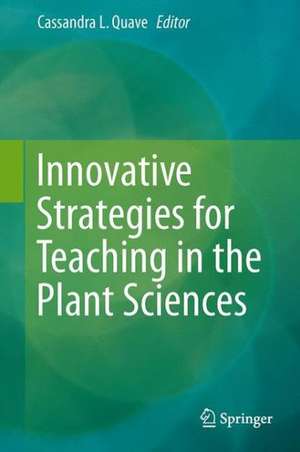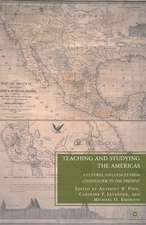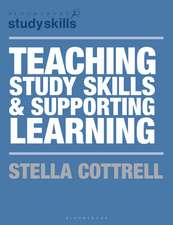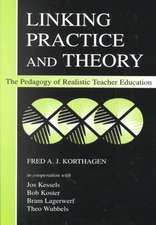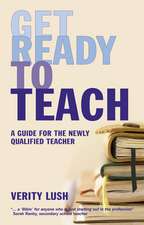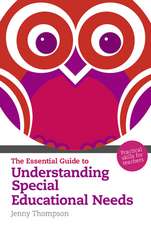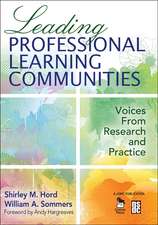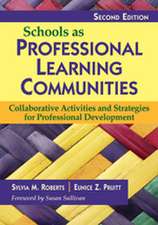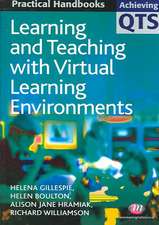Innovative Strategies for Teaching in the Plant Sciences
Editat de Cassandra L. Quaveen Limba Engleză Hardback – 12 apr 2014
Written by leaders in the field, Innovative Strategies for Teaching in the Plant Sciences is a valuable resource for teachers and graduate students in the plant sciences.
| Toate formatele și edițiile | Preț | Express |
|---|---|---|
| Paperback (1) | 529.60 lei 6-8 săpt. | |
| Springer – 3 sep 2016 | 529.60 lei 6-8 săpt. | |
| Hardback (1) | 644.95 lei 6-8 săpt. | |
| Springer – 12 apr 2014 | 644.95 lei 6-8 săpt. |
Preț: 644.95 lei
Preț vechi: 758.77 lei
-15% Nou
Puncte Express: 967
Preț estimativ în valută:
123.41€ • 127.32$ • 102.99£
123.41€ • 127.32$ • 102.99£
Carte tipărită la comandă
Livrare economică 27 martie-10 aprilie
Preluare comenzi: 021 569.72.76
Specificații
ISBN-13: 9781493904211
ISBN-10: 1493904213
Pagini: 340
Ilustrații: XXV, 312 p. 46 illus., 25 illus. in color.
Dimensiuni: 155 x 235 x 24 mm
Greutate: 0.54 kg
Ediția:2014
Editura: Springer
Colecția Springer
Locul publicării:New York, NY, United States
ISBN-10: 1493904213
Pagini: 340
Ilustrații: XXV, 312 p. 46 illus., 25 illus. in color.
Dimensiuni: 155 x 235 x 24 mm
Greutate: 0.54 kg
Ediția:2014
Editura: Springer
Colecția Springer
Locul publicării:New York, NY, United States
Public țintă
Professional/practitionerCuprins
Carrying Plant Knowledge Forward in the USA.- Lessons Learned in Development of an Interdisciplinary Science Curriculum Support Organization.- The Contribution of Ethnobiology to Teaching Plant Sciences: Student and Faculty Perspectives.- From Learning to Teaching: Bridging Students’ Experience and Teachers’ Expectations.- Research-Based Learning.- Aligning Plant Identification Curricula to Disciplinary Standards Through the Framework of Student-Centered Learning.- Cultivation of Local Botanical Knowledge or Knowledge of Nature Using Interdisciplinary, Innovative and Mind/Brain-Based Techniques.- “What’s That Called?” Folk Taxonomy and Connecting Students to the Human-Nature Interface.- Learning from the Land: Incorporating Indigenous Perspectives into the Plant Sciences.- Pedagogy and Botany of the Columbian Biological Exchange: The 1491 Meal.- Teaching Plant Science in School and Community Settings.- Using Community Resources for Ethnobotany Courses.- Learning in Paradise: The Role of Botanic Gardens in University Education.- Teaching Ethnobotany Through Field Research: A Case Study Integrating Conservation with Tibetan Traditional Ecological Knowledge.- Excursions in Teaching Plant Science Through the Local Ethnobotany of the Food-Medicine Continuum: Field Trips to Traditional Specialty Food Market.- Ecosystem Excitement: Using Everyday Items, Projects, Field Trips and Exotic Images to Connect Students to Plants.- Teaching Ethnobiology Online at a Canadian Distance Learning University.- Linking Student Skill-Building with Public Outreach and Education.
Notă biografică
Cassandra L. Quave, PhD
Emory University School of Medicine, Department of Dermatology and Center for the Study of Human Health, Atlanta, GA, USA.
Emory University School of Medicine, Department of Dermatology and Center for the Study of Human Health, Atlanta, GA, USA.
Textul de pe ultima copertă
Innovative Strategies for Teaching in the Plant Sciences focuses on innovative ways in which educators can enrich the plant science content being taught in universities and secondary schools. Drawing on contributions from scholars around the world, various methods of teaching plant science is demonstrated. Specifically, core concepts from ethnobotany can be used to foster the development of connections between students, their environment, and other cultures around the world. Furthermore, the volume presents different ways to incorporate local methods and technology into a hands-on approach to teaching and learning in the plant sciences.
Written by leaders in the field, Innovative Strategies for Teaching in the Plant Sciences is a valuable resource for teachers and graduate students in the plant sciences.
Written by leaders in the field, Innovative Strategies for Teaching in the Plant Sciences is a valuable resource for teachers and graduate students in the plant sciences.
Caracteristici
Chapters will provide various creative ways to engage students in the plant sciences, including the use of ethnobotany to relate cultural impact worldwide Chapters will be contributed by leaders in the field Affordable and accessible in content for teachers and botany specialists alike Includes supplementary material: sn.pub/extras
